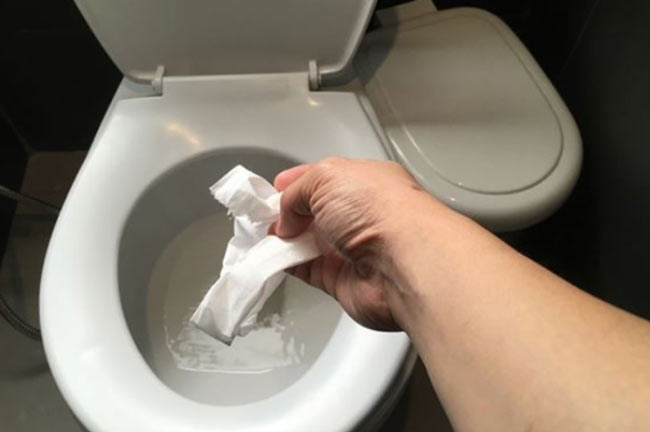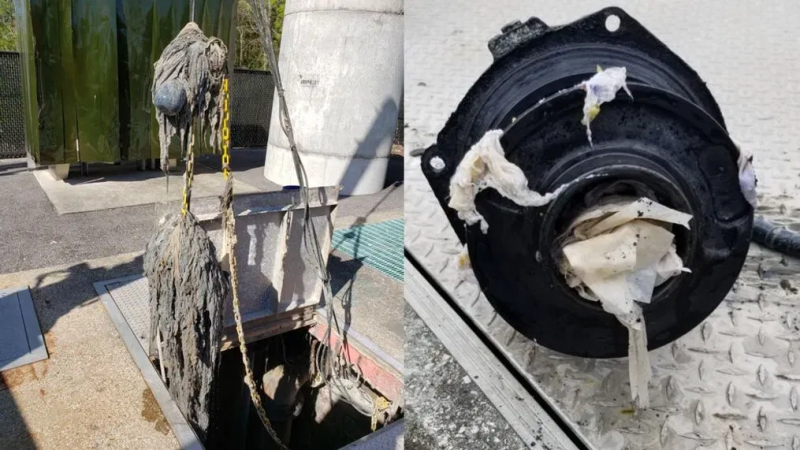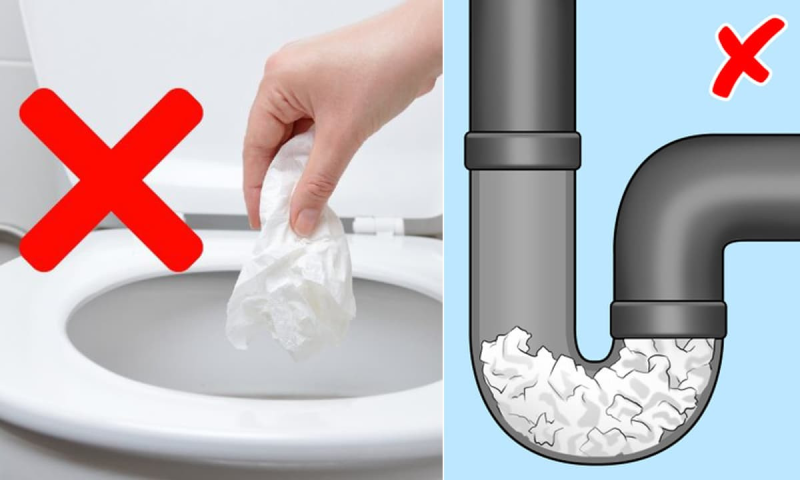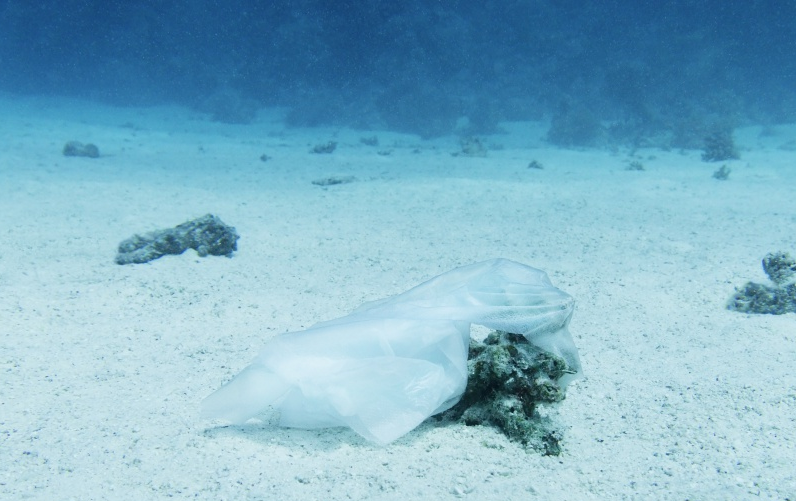Many people often habitually flush wet towels down the toilet after use. However, this can have a serious impact on the environment. Why shouldn’t you flush wet wipes? What is the impact of this action? This article will explain some of the causes and solutions to the problem.
Learn more: 10 Best Wet Wipes With Good Price for Baby & Adult Health
Wet wipes don’t break down properly in our sewers, so throwing tissues down the toilet isn’t advisable. However, many wet wipes are labeled with the “flushable” criteria, leading consumers to think they can be flushed down the toilet.
90% of wipes contain some form of plastic, which is one of the main reasons they don’t biodegrade like toilet paper. In addition, when wet wipes encounter other types of garbage or dirt that are poured down the sink, clumps of grease and garbage will form. These clumps of grease and sanitary items clog drains.

Flushing wet towels down the toilet will clog the pipes
See more: What are wet wipes? Common types and where to buy them
Flushing wet towels down the toilet can cause many problems. Here are the reasons you should not flush wet towels down the toilet:
Many people often think wet wipes will decompose after we flush the toilet, but the reality is that they almost never decompose. Toilet paper usually breaks down after about 24 hours or so, but wet wipes don’t, wet wipes will barely be damaged even when flushed.
Wet wipes were found intact in the drain even months after being flushed. In particular, because wet wipes are not structurally disrupted, they form a large build-up that leads to blockage of drain lines and, eventually, to redundant plumbing.
Fatberg is a condition in which wet wipes combine with fat, grease, and other contaminants that become trapped in pipes to form giant clogs in water pipes and sewers. The fatbergs can be 10 feet long or sometimes longer and weigh more than 100 pounds.
Fatbergs are frequently found in water pipes or sewers. Many people spend thousands of dollars on plumbing repairs because of this problem. Smaller variations of fatbergs are known as softball clogs and can be just as devastating as flushing a softball down the toilet.
Flushing wet wipes down the toilet can be devastating to your home’s septic system as well as your city’s sewer system. This is because backup drains can enter your home through sinks, drains, bathtubs, and other openings directly connected to your home’s septic system.
It will cost you thousands of dollars, not including plumbing repair, to solve this problem. When the blockage gets really bad, you may even have to replace your home’s septic system.

Flushing wet wipes down the toilet not only wreaks havoc on your home’s septic system but also your local sewer system
Wet wipes can also cause industrial-grade pumps to fail and overheat because of those fibrous wet wipes. If this happens, the taxpayer must pay the bill to repair or replace the pump. You won’t be surprised to learn that those pumps don’t come cheap.
Find out more:
Flushing wet wipes causes a lot of damage to yourself and seriously affects the environment, specifically:
Wet towels when flushed down the toilet will collect in your pipes. This will cause your plumbing problems and your toilet not to flush properly. This can potentially lead to sewage backing up into your home through the toilet.
If a blockage occurs on a section of the pipeline for which you are responsible, it can be troublesome and expensive to repair.

Flushing wet wipes down the toilet will clog your pipes
When heavy rainfall occurs, sewers can overflow and wet wipes can run into rivers or into the sea, leading to river and sea pollution. In addition, animals may end up ingesting wet wipes, which could cause them to suffocate or starve.

Animals can accidentally swallow wet wipes and suffocate or starve
Discover more: Is there plastic in wet wipes? Best alternatives of wet wipes
You can replace wet wipes with the more eco-friendly alternatives below:
Why shouldn’t you flush wet wipes? This is because flushing wet towels down the toilet can clog the pipe system, directly affect your family and harm the environment. Therefore, you should get into the habit of throwing wet towels in the trash or switching to other more environmentally friendly products. For more information, contact us:
Dong Hiep Trading and Investment Joint Stock Company:
Related posts: